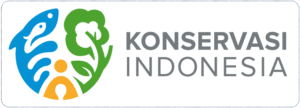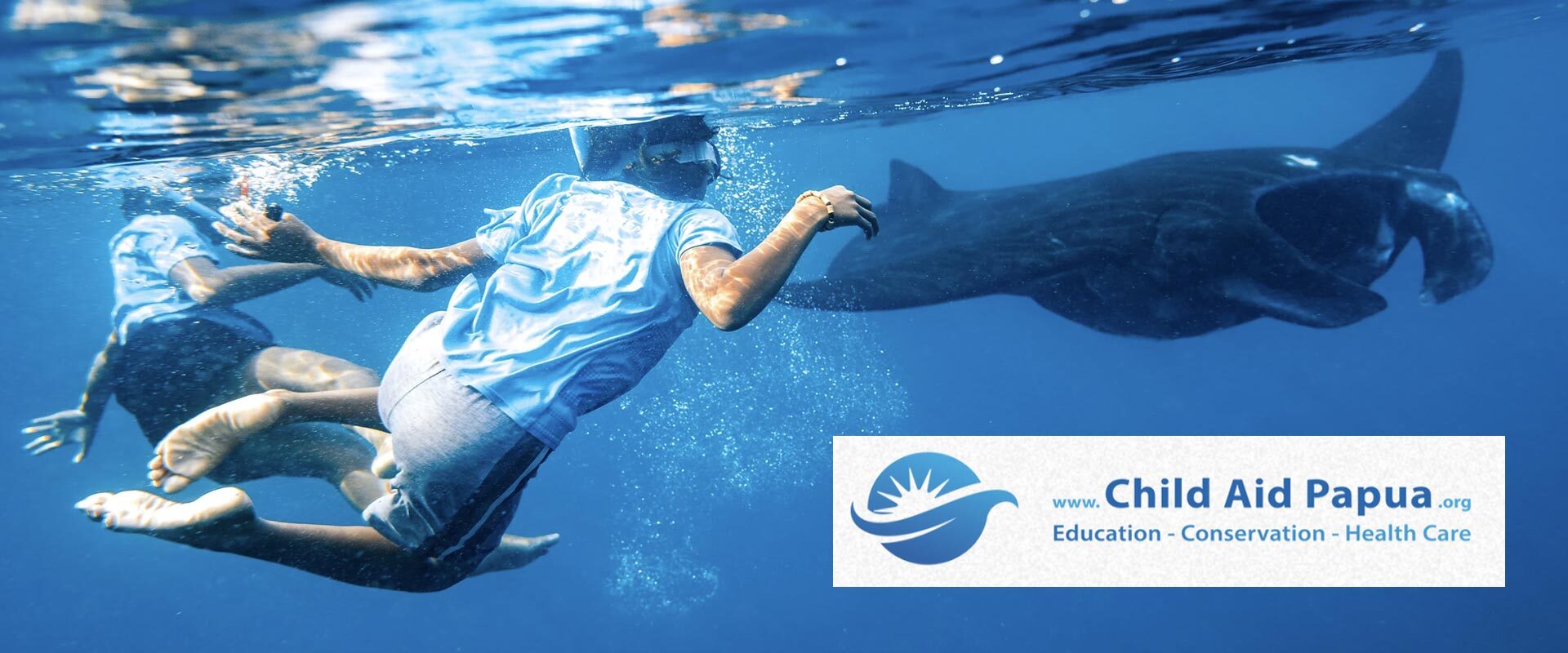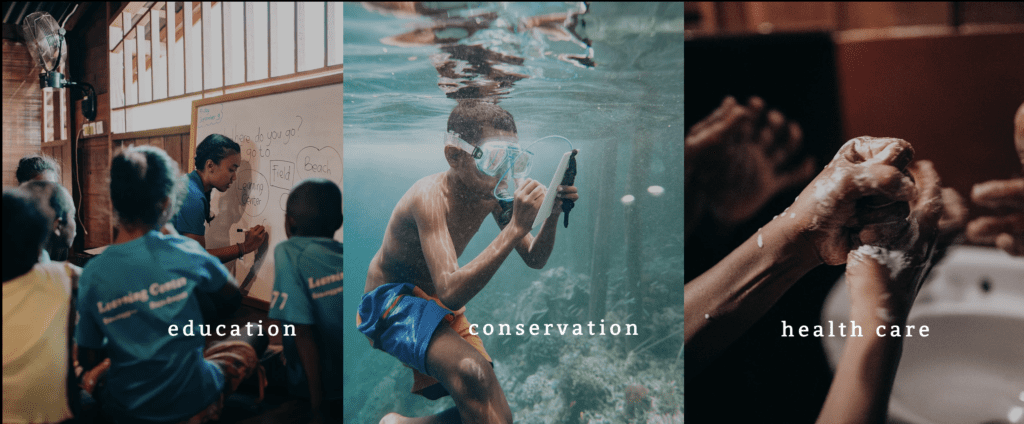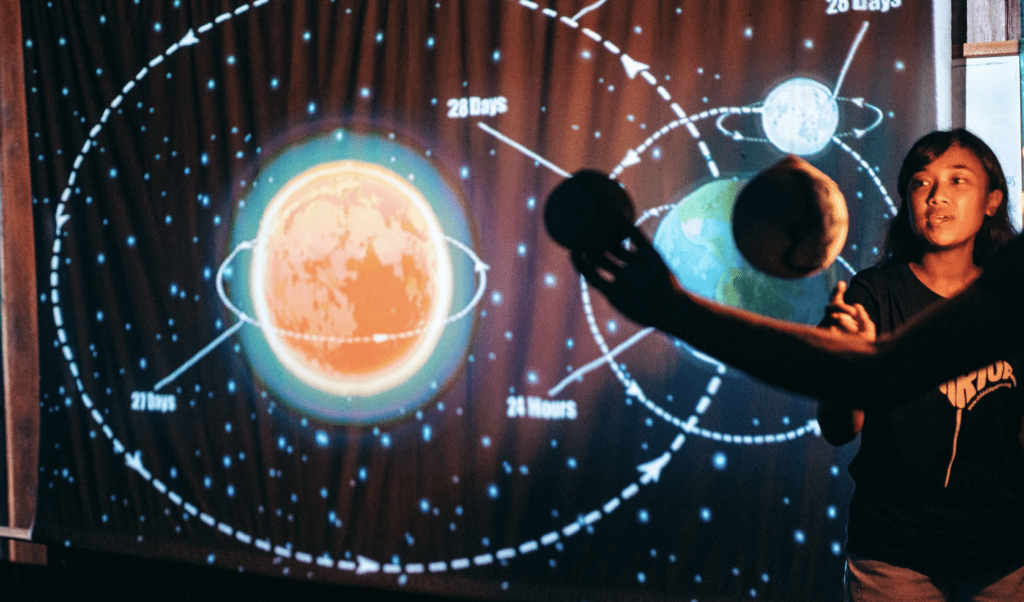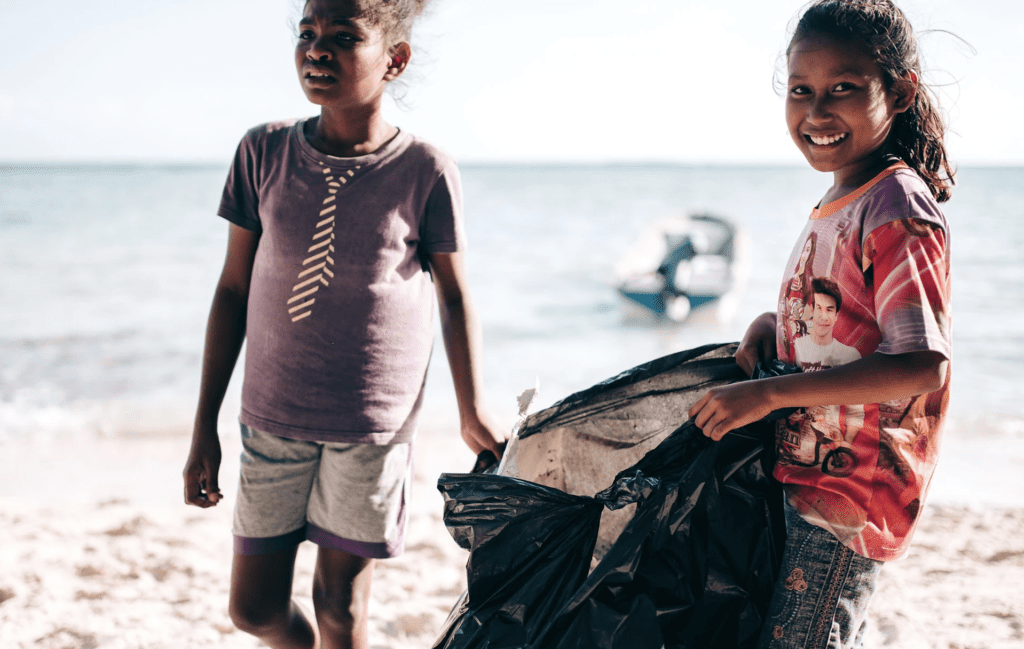Child Aid Papua: a three-fold approach; Part 2-Conservation
Administrator’s note: Since their humble beginning in 2018, we have posted a number of stories about Child Aid Papua (CAP) and their three-fold approach for the betterment of the children of Raja Ampat, which focuses on Education, Conservation and Healthcare. (Just do a search on the BHS website for those stories.)
While Raja Ampat has the world’s largest marine biodiversity, the diverse islands provide a unique home for many land animals and humans. Unfortunately this paradise is in great danger. Climate change, coral bleaching, mass tourism and the increasing pollution of the seas are threatening this sensitive ecosystem.
What happens in Raja Ampat has a direct impact on all oceans and thus on the entire earth. By raising the awareness of and educating today’s youth of Raja Ampat, we hope to increase awareness of environmental issues. In addition, the local population should be given the opportunity to protect their unique nature and culture.
At the Child Aid Papua Foundation our goal is to provide the future generation with the necessary skills to aid in conserving their precious environment. Through their own experience, the children are learning why current events represent an acute challenge to their future and what they can do to sustainably protect their breathtaking home.
The focus of this post will be CONSERVATION.
Practical Lessons
Projects
Ocean Warrior
In the “Ocean Warrior” project, CAP is working with other communities within Raja Ampat. In this project up to 600 Raja Ampat children learn why plastic waste is a problem and what they can do about it. Using a book created by our good friend Friendly Drifter, the children experience a story from their region. It tells the story of two children who notice the huge amount of waste and the suffering of the animals. They decide to change something and “clean” the islands. This story takes place in Raja Ampat and is therefore particularly memorable for our students.
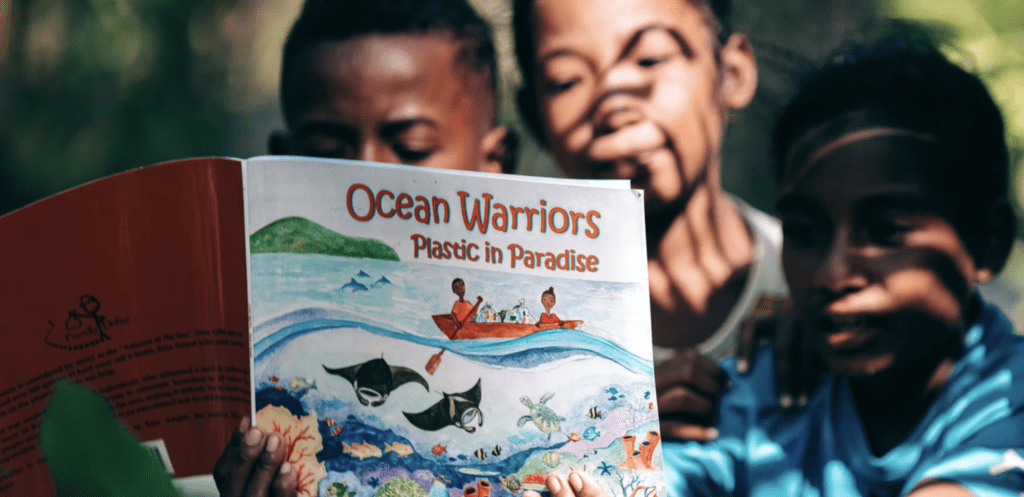
This book tells the story of two Raja Ampat children who decide to clean the islands of plastic waste.
To be an Ocean Warrior means:
- Caring about the environment
- Preventing plastic waste
- Not throwing garbage into the sea
- Collecting and properly disposing of waste
COTS
COTS (Crown of Thorns Seastars) feed on corals, which can potentially lead to the death of an entire reef. The problem is that the COTS spread very quickly and are therefore a major issue in the conservation of Raja’s marine environment.
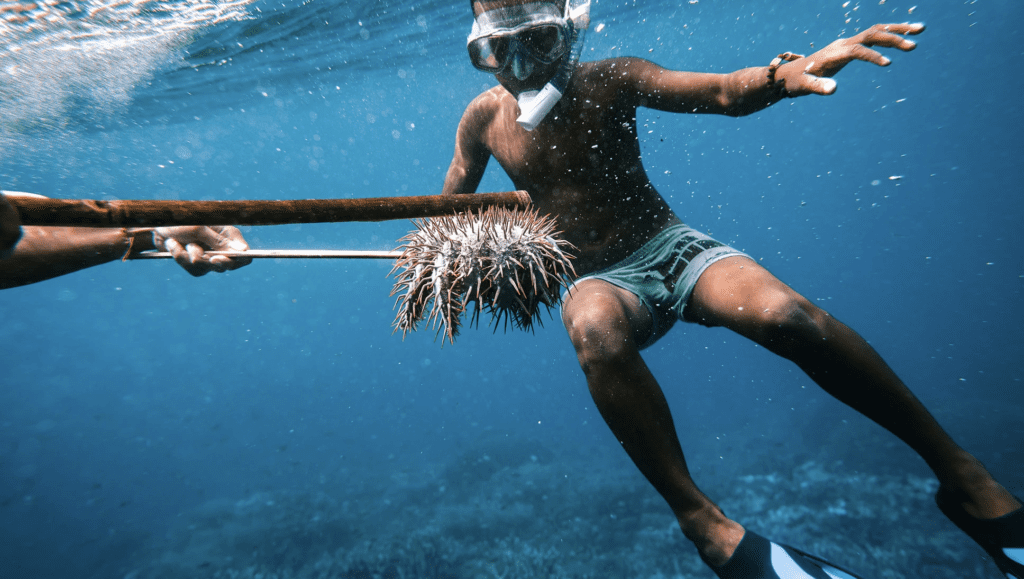
Crown of Thorns Seastars can destroy a reef. The removal project not only rids the reefs of a major predator, the dead seastars provide nutrient rich compost for community gardens
In cooperation with the local fisheries authority, CAP students take part in Raja Ampat’s conservation by removing COTS from the sea. Nothing is wasted, however, the COTS are composted in the village permaculture garden!
And speaking of the permaculture garden;
The Garden Project
Until now, all fruit and vegetables had to be brought to the islands from the nearby town of Waisai, the capital of Raja Ampat. However, with partners from Europe and Indonesia, a permaculture garden project was started at the beginning of 2020 in Sawinggari village. The objective is to support the renewal of a gardening culture in Sawinggrai for the benefit of the community. It aims to increase food security in the village, to support local businesses and to create sustainable livelihoods. The surplus harvest will be sold to nearby homestays and resorts. The project is expected to be self-financed and several locals will be employed to work at this garden. The garden will be a huge benefit for people and nature.
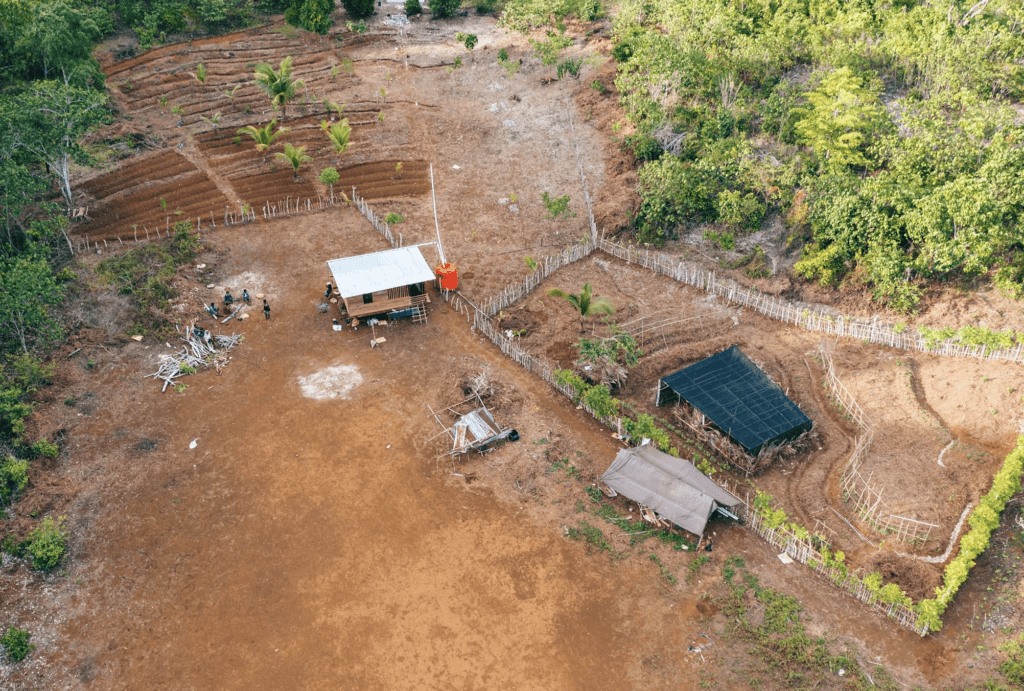
The Garden Project aims to increase food security in the village, to support local businesses and to create sustainable livelihoods.
Waste Solution Programs
In November 2019, in cooperation with the locals and with the help of CAP students, waste programs were launched in individual villages. Every week waste from the two villages of Kapisawar and Sawinggrai is collected, sorted, and sent to the trash bank in Sorong. Unfortunately, the trash must again be transported to a facility in far away Surabaya (Java), where it is finally melted and recycled. Through close cooperation with the staff of the trash bank, the collection process is monitored and is being constantly improved. Obviously, this program requires transportation and labour costs…
Click here to support these projects and help the children of Raja Ampat conserve their irreplaceable environment.















